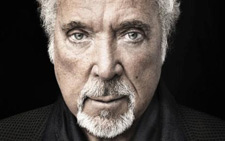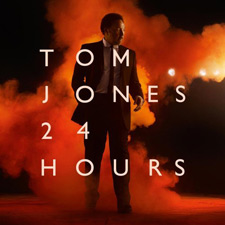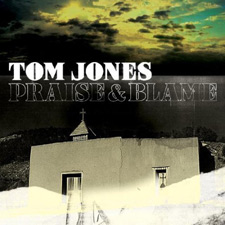 We all get old – and in a culture that worships youth, that can a problem. Used to be that once a performer hit middle age, they were relegated to the where-are-they-now file, and forced to tour the oldies circuit.
We all get old – and in a culture that worships youth, that can a problem. Used to be that once a performer hit middle age, they were relegated to the where-are-they-now file, and forced to tour the oldies circuit.
For some, that remains the case; but ever since the baby boomers began hitting retirement age, things have changed. The refusal to let go of their heroes has led to a curious state of affairs, where careers are extended long past what was previously thought possible.
For every 60-something strutting the stage attempting to recreate the past – the Peter Pan syndrome in all its glory – works of remarkable depth are being produced by others well past retirement age.
Last year’s Together Through Life saw Bob Dylan, then 67 years old, become the oldest performer ever to score a #1 position on the Billboard Album Charts (Louis Armstrong was 63 when Hello Dolly hit the top in 1964). It was the latest in a decade-long return to form for Dylan; and while his is a singular talent, this was hardly an isolated occurrence.
At 71 years old, Dion DiMucci is enjoying a similar artistic renaissance. Over the last half decade the doo wop legend has released a trio of albums (Bronx In Blue, Son Of Skip James, and Heroes: Giants of Early Guitar Rock) that manage to explore his roots and reveal ongoing growth at the same time.
 Robert Plant – at 61, a relative youngster in this list – opted out of the rumored Led Zeppelin reunion tour, stating: “it’s the mark of very old men who are very bored.” He chose instead to focus on promoting Raising Sand, his duet album with bluegrass sensation Allison Krauss.
Robert Plant – at 61, a relative youngster in this list – opted out of the rumored Led Zeppelin reunion tour, stating: “it’s the mark of very old men who are very bored.” He chose instead to focus on promoting Raising Sand, his duet album with bluegrass sensation Allison Krauss.
The album – a considerable artistic stretch for Plant – garnered rave reviews and multiple Grammy awards.
At 70, Tom Jones now sports silver locks, and has come a long way from the days of old.
Originally known for his hard driving rock ‘n’ roll and soul material, by the 1970s he had taken on a glitzy persona that exuded sexuality and showbiz. It was incremental at first, but within a decade he’d ended up in Las Vegas – literally and figuratively – where rambunctious female audience members tossed their undergarments to the stage on a nightly basis.
By then, any critical goodwill was long since squandered, and he was ripe for parody. The image that had turned him into an icon felt more like a straightjacket.
In the late 1980s he decided it was time for a change. Distancing himself from the Vegas shtick, he took on more interesting projects – such as collaborating with techno pop group Art of Noise – and staged the first of numerous comebacks.
 He’s currently in the middle of yet another resurgence.
He’s currently in the middle of yet another resurgence.
His 2008 release, 24 Hours featured an updated mix of R&B and modern soul. Along with original material were choice covers by Bruce Springsteen, Tommy James – and ‘Sugar Daddy,’ a track written for him and featuring Bono and The Edge.
Despite the disc’s popularity, Jones decided to follow it up with something seemingly totally out of left field.
 Consisting entirely of gospel-based songs, Praise And Blame is certainly not what anyone was expecting.
Consisting entirely of gospel-based songs, Praise And Blame is certainly not what anyone was expecting.
Especially, it seems, his label.
It’s his first release with Island Records, and shortly before the album came out, Western Mail reported on a leaked email from an Island executive who complained the project was a “sick joke,” claiming “we did not invest a fortune in an established artist for him to deliver 12 tracks from the common book of prayer.”
There’s an odd irony here: years ago, Jones was perceived as commercial fodder of the worst sort, whereas Island was a fiercely independent label that stood for artistic freedom – with acts like Bob Marley, U2, and Tom Waits highlighting it’s storied roster.
Jones sang alongside the band, live in the studio. Nearly all are first takes, without overdubs. It’s heartfelt, and ample evidence of just how good a vocalist he remains.
In many ways Praise And Blame is simply a return to his roots.
Growing up in Wales, Jones regularly heard acts like Sister Rosetta Tharpe and Mahalia Jackson on the radio, and recently commented on how their songs are "just like rock’n’roll – every bit as exciting, but with deeper lyrics."
 Material comes from a number of sources, including Bob Dylan, Jessie Mae Hemphill, Billy Joe Shaver and John Lee Hooker – whose ‘Burning Hell,’ is a highlight.
Material comes from a number of sources, including Bob Dylan, Jessie Mae Hemphill, Billy Joe Shaver and John Lee Hooker – whose ‘Burning Hell,’ is a highlight.
Curiously, after assigning proper composer credit on the first seven tracks, the remaining four are credited to Jones and Producer Ethan Johns. While they’re older, they’re certainly not obscurities: Blind Willie Johnson’s ‘Nobody’s Fault But Mine,’ ‘Didn’t it Rain’ ‘Ain’t No Grave’ are popular numbers (Sister Rosetta Tharpe covered all 3); and even ‘Run On’ was recorded by the Golden Gate Quartet and Elvis Presley.
As producer, Johns (Kings Of Leon, Rufus Wainwright) does an admirable job at keeping things on track. The band – including guest stints from Booker T, Augie Meyers and BJ Cole – along with back-up vocals from Orin Waters, Gillian Welch and David Rawlings – play with a sense of cohesion from start to finish.
Despite one Island executive’s apprehension, there’s little reason to worry; Praise And Blame stands alongside Jones’ best work.
© John Cody 2010